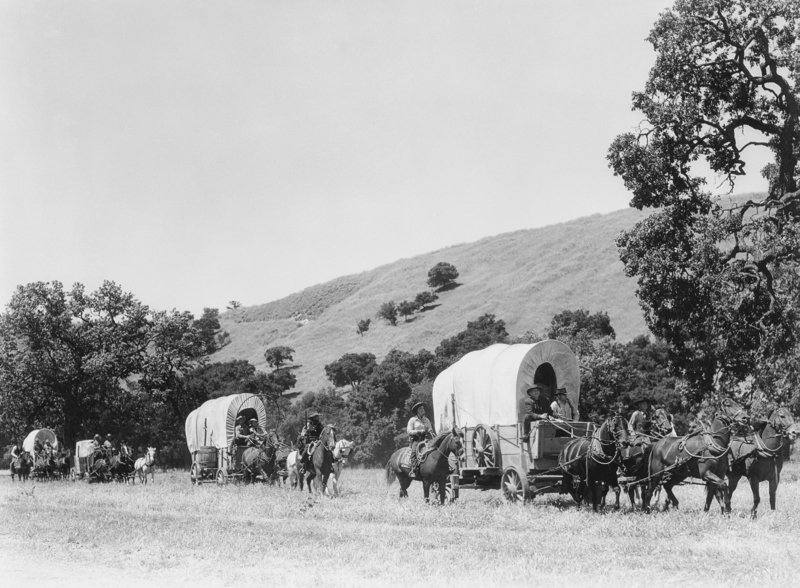Maximize Freezer Longevity With Proper Storage Techniques
Is your freezer working as efficiently as it should? Are you making the most of its lifespan? If you want to maximize your freezer's longevity, employing proper storage techniques is crucial. With the right methods, not only will your frozen goods stay fresh and safe for longer, but your appliance will also function optimally for years to come.
In this comprehensive article, we'll explore the best practices to maximize freezer lifespan and ensure optimal food storage. From temperature control to efficient organization, discover everything you need to know to get the most out of your freezer investment.
Why Proper Freezer Storage Techniques Matter
A well-maintained freezer isn't just about keeping ice cream cold--it can be a significant factor in food safety, reducing waste, and even saving money on energy bills. The way you store food directly impacts how efficiently your freezer works. Improperly stored items can block airflow, overtax the motor, and ultimately shorten your appliance's life.
Freezer Longevity and Efficiency
- Preserves Appliance Health: Organized and correctly packed items don't hinder airflow, helping your freezer run less and last longer.
- Reduces Energy Consumption: Efficient storage means your freezer doesn't need to work as hard, which translates to lower energy bills and less wear and tear.
- Maintains Food Quality: Proper storage prevents freezer burn and food contamination, ensuring you consume only the best-tasting, safest meals.

How to Store Food for Maximum Freezer Longevity
To maximize freezer longevity with proper storage techniques, a systematic approach is essential. Let's dive into the core practices that keep both your food and freezer in peak condition.
1. Maintain the Optimal Freezer Temperature
Temperature is the foundation of safe and efficient freezer storage. The ideal freezer temperature is 0?F (-18?C) or lower. This threshold prevents bacteria growth and ensures foods are preserved for the long term.
- Monitor Temperature Regularly: Use an appliance thermometer to check internal temperature, and adjust settings as needed.
- Don't Overload or Underfill: A moderately full freezer is most efficient. Too much food restricts airflow, while too little makes it work harder to maintain temperature.
- Avoid Frequent Door Openings: Every time you open the door, cold air escapes and warm air enters, making your freezer work harder.
2. Package Foods Correctly
How you package your food is vital for maximizing frozen food quality and maintaining freezer efficiency. Poorly wrapped items lead to freezer burn and possible cross-contamination.
- Use Airtight Containers: Choose vacuum-seal bags, freezer-safe plastic containers, or heavy-duty aluminum foil.
- Remove Excess Air: Before sealing, push out as much air as possible--oxygen is the main culprit in freezer burn.
- Label and Date Everything: Clearly mark packaging with the date of freezing, so you always use the oldest items first.
- Portion Wisely: Divide food into meal-sized portions for faster freezing and easier organization.
3. Smart Food Organization
A tidy, well-organized freezer isn't just visually pleasing--it's a key factor in enhancing freezer lifespan.
- First In, First Out (FIFO) System: Store new items behind older ones. This ensures you use up food before spoilage or quality loss.
- Group Similar Items: Store meats, vegetables, prepared meals, and desserts in separate sections or bins. This reduces the time spent searching with the door open.
- Don't Stack Too Densely: Leave some gaps for air circulation, which helps maintain a consistent temperature throughout.
Reduce Freezer Strain With These Advanced Techniques
To extend freezer life further, go beyond the basics with these advanced tips. By regularly maintaining your appliance and monitoring frozen foods, you'll ensure both long-term performance and food integrity.
1. Routine Defrosting and Cleaning
Manual defrost models need regular defrosting to prevent ice build-up; even self-defrosting freezers benefit from periodic cleaning. Ice accumulation impedes the freezer's ability to cool efficiently, forcing the system to work harder and potentially causing premature wear and tear.
- Defrost When Frost Is 1/4 Inch Thick: Don't let frost accumulate beyond this level.
- Clean With Mild Soap: Use a solution of mild detergent and warm water. Avoid harsh chemicals that can damage interior linings.
- Dry Thoroughly Before Restocking: Reduce the risk of ice forming too quickly or food sticking to surfaces.
2. Check Door Seals Frequently
Doors are one of the primary entry points for warm air, making them a common cause of freezer inefficiency. Faulty seals let in heat, leading to increased energy consumption and decreased appliance lifespan.
- Test With a Dollar Bill: Close the door on a bill. If you can pull it out easily, the seal may need replacing.
- Keep Seals Clean: Wipe with a damp cloth regularly to prevent dirt buildup, which can compromise the seal.
- Replace Worn Gaskets: A small investment in new door gaskets can drastically increase your freezer's efficiency.
3. Allow Hot Foods to Cool Before Freezing
Placing hot or even warm food directly in the freezer elevates the internal temperature, potentially thawing other items and making your freezer work overtime to regain the right temperature.
- Cool Food to Room Temperature: Allow cooked dishes or leftovers to rest on the counter or in the fridge before freezing.
- Use Shallow Containers: Transfer in smaller portions to speed up cooling and freezing.
4. Avoid Storing Certain Items
Not everything is suitable for long-term freezing. Being selective helps prevent unwanted odors, contamination, and appliance strain.
- High Water Content Produce: Lettuce, cucumber, and celery lose texture when frozen and thawed.
- Eggs In Shells: These may crack and pose contamination risks.
- Cream-Based Sauces: Most separate or curdle after freezing.
Innovative Tips for Prolonging Freezer Service Life
To truly maximize freezer longevity, consider implementing some lesser-known strategies for even better results.
- Leave Room Behind the Freezer: Position the appliance a few inches away from the wall for optimal air circulation near the condenser coils.
- Vacuum Coils Regularly: Dusty coils lower efficiency and put pressure on the compressor. Clean every 6 months.
- Invest in Power Surge Protection: Freezers are sensitive to voltage fluctuations; a surge protector can prevent electrical damage.
- Set Reminders for Inventory Checks: Every couple of months, audit your freezer for expired or forgotten items to prevent overcrowding and improve airflow.
- Keep a Freezer Inventory: Use a dry erase board or app to track contents. This helps plan meals and reduce the time spent with the door open.
Common Mistakes That Reduce Freezer Longevity
Even with good intentions, it's easy to fall into habits that indirectly cut short your freezer's useful life. Watch out for these frequent pitfalls:
- Overloading or Underfilling: As mentioned earlier, extremes either block airflow or make the appliance work harder to maintain temperature.
- Ignoring Manufacturer Instructions: Each freezer is unique--always follow your model's specific care and maintenance guidelines.
- Poor Cleaning Habits: Failing to clean gaskets, remove expired items, or defrost reduces efficiency and hygiene.
- Improper Food Packaging: Thin wraps, non-freezer bags, or unsealed containers lead to spoiled food and excess moisture, increasing frost build-up.
The Role of Regular Maintenance in Freezer Preservation
Ongoing freezer care is essential--not just for food safety, but also for extending the usable life of your appliance. Set a recurring calendar reminder to:
- Inspect Door Seals for cracks or gaps each quarter.
- Defrost & Deep Clean every six months or as needed.
- Clean Coils for optimal heat exchange and efficiency.
- Test Temperatures and recalibrate as necessary.
Preventive maintenance, paired with correct storage strategies, is the true key to maximizing freezer longevity.

Frequently Asked Questions About Freezer Longevity
Q: How long do freezers typically last?
With proper care and storage practices, most modern freezers last between 12-20 years. Following the advice in this article can help you reach (or even surpass) the upper end of that window.
Q: Is it better to keep a freezer full or empty?
A partially to fully stocked freezer holds temperature more efficiently. If you don't have enough food, fill empty milk jugs with water and freeze them to help maintain cold temperatures during power outages.
Q: Can I store food in the freezer past its expiration date?
While freezing drastically slows spoilage, quality and flavor decline over time. Always adhere to recommended storage times for specific foods and use clear labeling to avoid confusion.
Q: What is freezer burn, and is it dangerous?
Freezer burn is caused by air exposure that dehydrates and oxidizes food. It's not dangerous but can make food taste unpleasant and reduce its nutritional value. Prevent it by using airtight, thick packaging.
Conclusion: Extend Freezer Life With Simple Steps
By adopting proper freezer storage techniques, you can maximize the longevity of your freezer and the quality of your frozen food. Pay close attention to temperature management, airtight packaging, effective organization, and regular maintenance. Avoid common mistakes and implement advanced strategies for even greater appliance efficiency.
A bit of proactive care ensures you get the most value from your freezer investment, keep your energy bills low, and ensure a safe, delicious supply of frozen foods with every meal.
Start incorporating these proper storage techniques today--and enjoy a reliable, efficient freezer for years to come!



